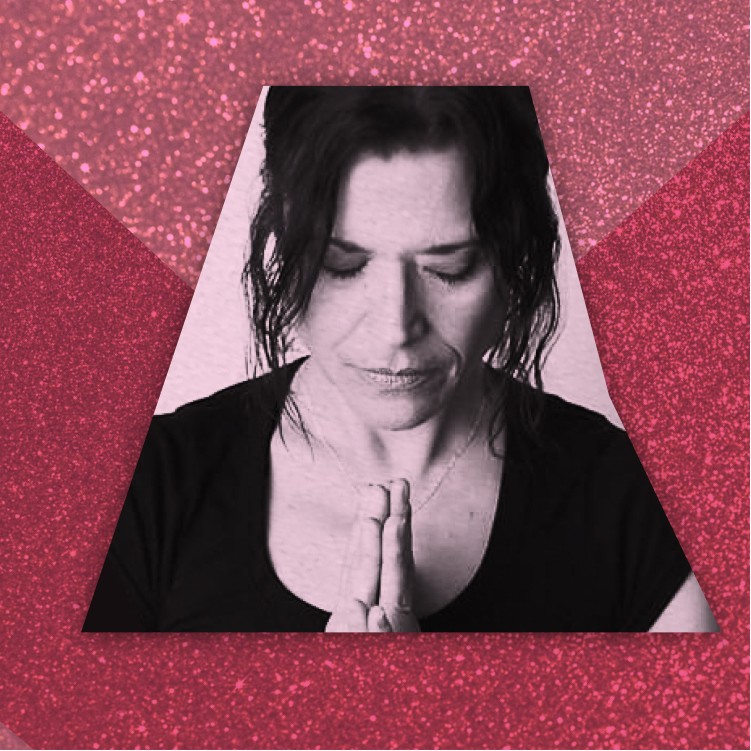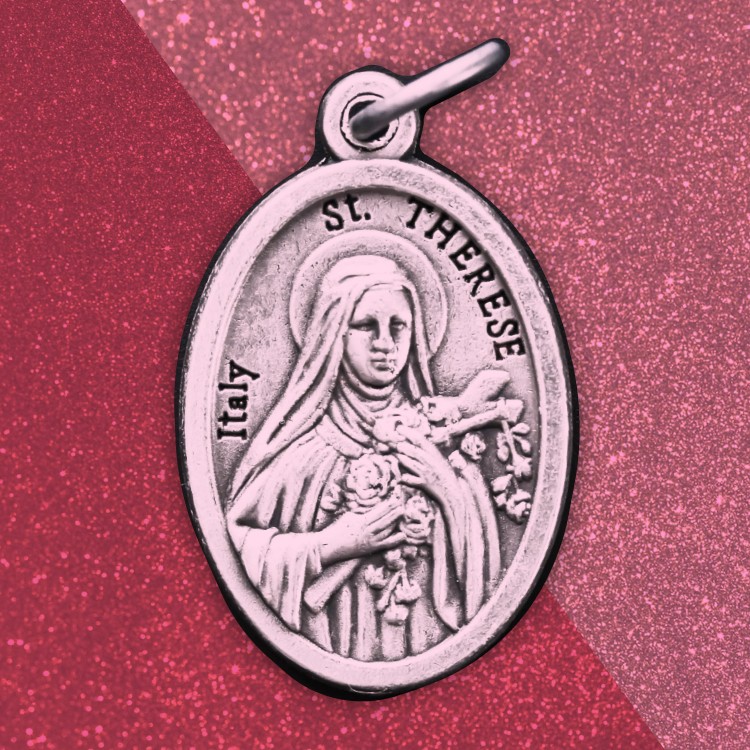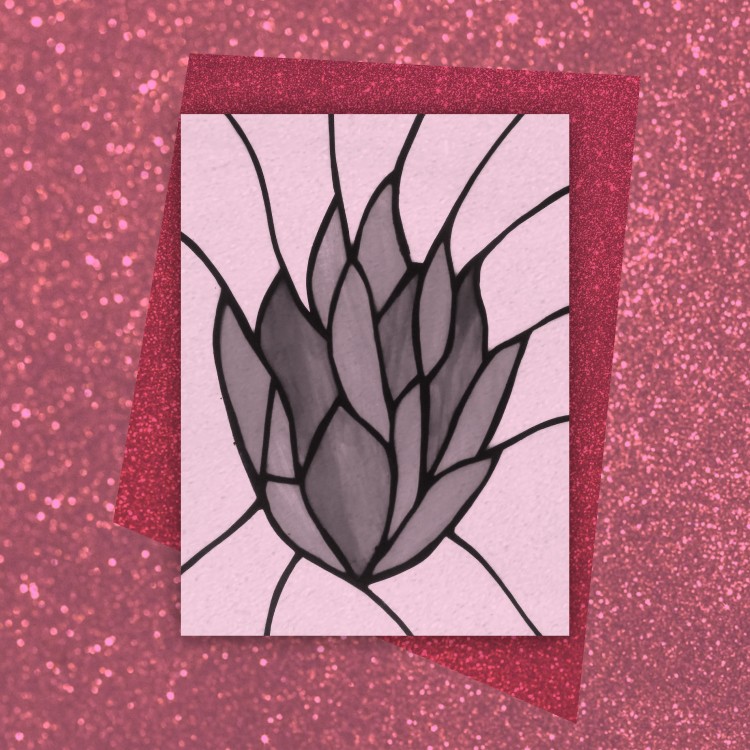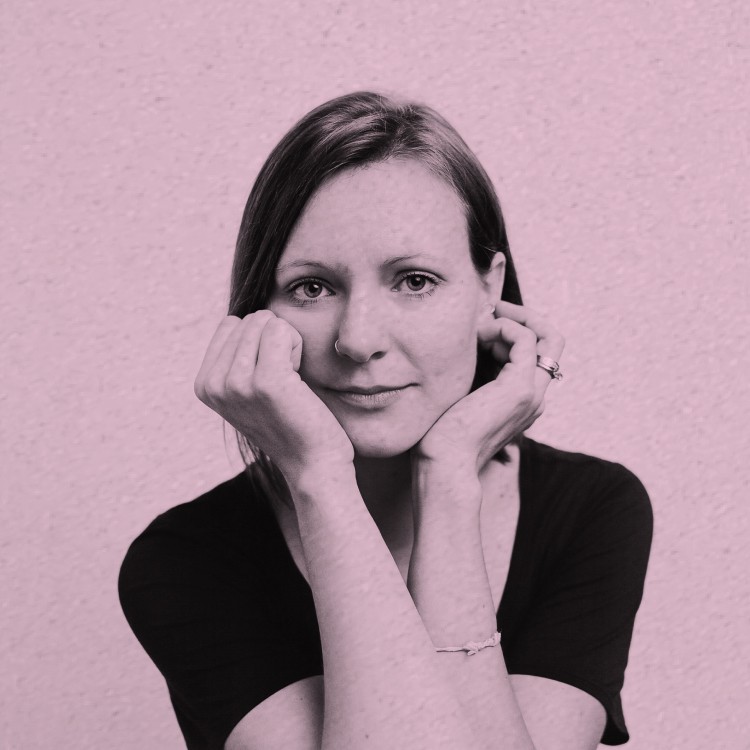Mom
Simon travels to Boulder to meet Alana’s mother Joyce, and becomes determined to help her understand what happened to Alana.
Part 1 • 32:23
Dear Alana, is available free on all platforms and as an exclusive ad-free binge for Tenderfoot+ subscribers. To sign up or learn more, visit Tenderfootplus.com.
Transcript
The views and opinions expressed in this podcast are solely those of the podcast author or individuals participating in the podcast and do not represent those of Tenderfoot TV or their employees.
This podcast also contains subject matter which may not be suitable for everyone. Listener discretion is advised. The following episode contains references to suicide. If you or someone you know is in need of help, please contact the Suicide and Crisis Lifeline by dialing 988. Listener discretion is advised.
[“Happy Birthday” song for 38th birthday]
SIMON KENT FUNG: It's my birthday, and you can tell from my voice that I'm not as excited to turn 38 as my nephews are. I thought my life would look pretty different. My younger self would’ve guessed that I'd be married by now. Not single, and newly unemployed, having just burnt out of the tech career I’d spent so much of my life building.
I remember birthdays as a kid. When I turned seven, my dad taught me how to ride a bike for the first time. Life was in some ways so much simpler, but still kinda terrifying.
I grew up in the Catholic Church. And not just the occasional Sunday Mass. As a kid and throughout my early adult years, I actually wanted to become a priest. This might sound intense, but for Catholics, the purpose of life isn’t to become a good person, or even to become a priest, but it’s to become… a saint. Saints, they said, were united with the people here on earth from beyond the grave, in a kind of mystical way. At first this scared me, thinking about the dead having an influence on the living. But the saints, they wanted to help us. I remember praying to St. Anthony when I couldn’t find my pencil case. And he totally came through. But if you had told me that someone who died, who I’d never met, would take me from my life in San Francisco, compel me to spend the next three years following her story, and make me confront my biggest fears in real time, I wouldn’t have believed you. That would be taking this mystical concept too far.
ALANA CHEN: Hi, my name’s Alana. And last summer I went to Camp Wojtila, and one of the most profound experiences I had was there on the rock climbing wall.
SIMON KENT FUNG: This is Alana Chen. She's 16 and standing in front of the Rocky Mountains, where she's attending an outdoor Catholic summer camp.
ALANA CHEN: And as I was going, I was climbing really excited. But eventually I got to this place where I was just stuck on the rock. And the people that were helping me were trying to tell me which way to go so that I could keep going, keep climbing up. And I just didn't want to listen. So for a while, I blocked them out. But I was still stuck. So I was just stuck there, holding, clinging on.
SIMON KENT FUNG: Alana’s from a small town outside of Boulder, Colorado. She works at an ice cream shop called Sweet Cow. Her favorite flavor is Chocolate Oatmeal Stout.
ALANA CHEN: And eventually I just got more and more tired and weaker. And they just kept saying, “Okay, just let go. If you let go of the rock, like the rope will just swing you back to that straight path.” And still I didn't want to listen to them.
SIMON KENT FUNG: Alana’s really good at Ultimate Frisbee. Her team makes it to the state finals. But she’s a little different from the rest of her teammates. That’s because, since she was 13, she’s wanted to become…a nun.
ALANA CHEN: But eventually, as I just sat there, I just heard in my heart this voice that was just saying, “Let go. Just let go of anything you're holding onto—your pride or your fear. And the ropes will catch you.” And in reality, it was like God would catch me in that moment. Because I could just let go, and not be afraid anymore.
SIMON KENT FUNG: I remember the day I learned about Alana. It was December 2019, and I was scrolling on my phone, when I came across the news of a girl from Boulder, Colorado, who wanted to become a nun, was told to keep a secret, and who died at the age of 24, with her entire life ahead of her.
BRIAN SANDERS (DENVER 7 NEWS): Breaking from overnight, Louisville police are searching for a missing 24-year old woman.
JACLYN ALLEN (DENVER 7 NEWS): Our Denver7’s Adi Guajardo sat down with her family and Adi, they tell you they believe conversion therapy played a role.
ADI GUAJARDO (DENVER 7 NEWS): Yes, the mother says her daughter first opened up to a priest at her church when she was just 14 years old. However, the Church denies any conversion therapy was done.
SIMON KENT FUNG: I froze. My blood went cold. And it felt like time stopped. You see, I recognized the kind of religious community that Alana was a part of, the kind of counsel and therapy (she allegedly received) that promised to convert her sexuality. Even the way the Church responded. I recognized these things because, even though I’m a decade older than her, Alana’s story sounded strikingly similar to mine.
I went on Facebook and started searching. I found Alana’s mother, who’d just posted about how Alana had sought a controversial kind of therapy against her parents’ wishes. Overcome with, I don’t know what, I wrote to her, sharing things I never talk about with anyone. Things I’ve kept secret. I told her about how I’d always wanted to be a priest when I grew up. That to me, conversion therapy wasn’t a buzzword—I’d spent my twenties trying to change my sexual orientation and even sought one of the most acclaimed Catholic therapists to help me. And I shared how important the Church still was in my life. I had no expectations that she would get back to me. I just wanted her to know that maybe someone out there understood.
A few months later, Alana’s mother, Joyce, wrote back to me and we talked on the phone. Her grief was palpable. She shared memories of Alana and blamed herself for not knowing earlier or doing more. We stayed in touch like this over the months through emails and phone calls. Sometimes she’d send a single text in the middle of the night saying, “I miss her so much.”
While all of this might seem like any other tragedy, just another example of a young life cut too short, I wonder if there’s more to this story. Memories that I thought were behind me keep flooding back, and my gut tells me there’s more to her death than what’s been in the news. I need to know: How does someone who seemed to do everything right, go from wanting to become a nun, to telling reporters that “if there is a God, he doesn’t need me talking to him anymore”?
This is the story of a girl caught between earnest faith and the American culture wars, teenage rebellion and spiritual manipulation, the promise of purity and the price we pay to belong. And this is my story of how a girl I never met would turn my faith and my life upside down.
From Tenderfoot TV, I’m Simon Kent Fung. And this is Dear Alana.
Part One. Mom.
It's been a year and a half since I first reached out to Alana's mother, Joyce. She texted me earlier in the day, and we talked about how great it would be to finally meet up in person. Having just spent time with my family for my birthday, I've been thinking about Alana and her family a lot. Joyce has had a hard time going through Alana’s stuff, and she mentioned that she wants to write a book about her one day. Making a trip out to Boulder, maybe I could help her organize Alana's computer, and fix her email, that sort of thing. I glance down at my dog, Sophie, who looks up from the couch in my 1-bedroom apartment, my box of work stuff still unpacked. It’s painfully obvious I have nothing tethering me here. So I book a flight to Colorado.
GATE ATTENDANT: And good morning once again ladies and gentleman 1037 service to Denver is now ready for boarding.
SIMON KENT FUNG: As I pick up my rental car and drive towards Boulder, I'm struck by how flat and wide this part of Colorado is. Compared to San Francisco, everything feels spread out.
SIMON: I just passed by a tattoo and art gallery.
SIMON KENT FUNG: In between each city are stretches of cornfields and ranch land and Dominos and nail salons. But the sky is everywhere. The sky and the mountains are everywhere.
As I pull up into the parking lot of her apartment complex, I can’t believe I’m finally going to meet this woman who I’ve been texting and talking with for so long.
JOYCE: Simon!
SIMON: Joyce?
SIMON KENT FUNG: A dark-haired woman calls to me from the second floor. She comes down to let me in.
JOYCE: I can't believe you’re here!
SIMON: I can't believe it either. This is so surreal! You look great. You look great. You really do.
JOYCE: Thank you. A little makeup can do some wonders.
SIMON KENT FUNG: Joyce is tall and striking in person, with a dark olive complexion and a wide smile. She’s 60 and has this disarming, yoga mom energy. She lives alone on the outskirts of Boulder having gotten divorced about eight months ago, while Alana's father, Mike, kept the house. The kids have all moved away, and Joyce and Mike share custody of their two dogs, who are with her this week.
SIMON: Oh, my gosh.
JOYCE: Come on in to my home.
SIMON KENT FUNG: Her small apartment is full of light and tastefully decorated with white furniture.
SIMON: Beautiful! Look at how you’ve done this place up.
JOYCE: Yeah, I have a lot of Alana in here.
SIMON KENT FUNG: She eagerly shows me around.
JOYCE: Shes’’s like everywhere. Well, that's her picture from her birthday.
SIMON KENT FUNG: Along the wall of the entrance is one of the last photos of Alana, head tilted, and holding two packages in her hands. I recognize this photo from the missing persons police report.
JOYCE: That was two months before she passed. She was so happy.
SIMON: What were the gifts that she's holding?
JOYCE: Oh, some of my friends, they got her hiking socks because she loved to go hiking and climbing. Yeah. And it's funny, these shoes. She was also, like, outdoorsy. But then she'd do fashion. She’d pick something like that, and I'd be like, I'd never wear something like that. But we went to the monastery for that retreat, that was October, and there's a thrift shop, so she picked those out and some cool pants... And that’s the art, she did that in high school.
SIMON: No way!
SIMON KENT FUNG: We're standing in front of an impressive canvas of pink and crimson flowers.
SIMON: Stained glass?
JOYCE: You know what it looks like? Stained glass. Everybody says that. She made it out of pieces of magazine. It's crazy.
SIMON: She’s got a great eye.
JOYCE: Yeah, she was so artistic. Finally before, like, she finally said, “I'm going to be an artist.” I'm like, yes! That's what you already are. But I have everything, I'll show you. Do you want any ice water or seltzer water?
SIMON KENT FUNG: Alana was born in October of 1995, the third of four children. Compared to her rowdier siblings Alana was the shy, sensitive, empathetic kid.
CARISSA: I feel like she had this quiet but really funny sense of humor.
SIMON KENT FUNG: This is Carissa, Alana's older sister, two years apart. The more I learn about Alana, the more this picture of a quiet, bright, goofball emerges.
CARISSA: Like, she'll tell you these stories, and you're just like, what on Earth? You dislocated your shoulder and then put it back in place on your own?
SIMON KENT FUNG: She remembers the first time she tried to throw a party while her parents were away.
CARISSA: And she was like, “Why are you cleaning so much?” I was like, “Oh, I just want to have a clean house while mom and dad are gone for the weekend.”
SIMON KENT FUNG: Alana quickly caught on after seeing the bags of alcohol in Carissa’s bedroom.
CARISSA: And then she texted me a few hours later, and she was like, “I know you're having a party tonight. Don't lie to me. I don't care. But don't let anyone sleep in my room.” And I was like, okay, fair..
SIMON KENT FUNG: Carissa threw the party. All was well.
CARISSA: A whole year passes by, and she decides to tell my mom because she can't hold it in any longer. And my mom was like, “You're grounded.” I was like, for what? She's like, “One year ago, you had a party. So Alana told me about it.” And I was just like, Alana, are you kidding me? And my mom was so upset. She was like, “You made your sister keep that from me all this time?” I was like, well, I didn't realize it was bothering her. That was annoying to me.
SIMON KENT FUNG: Back at the apartment, Joyce is going through some family photos.
JOYCE: So that’s Mike’s mother. He’s full Chinese. He was born in the U.S. in New York.
SIMON: And your background is?
JOYCE: My mom, her parents were Puerto Rican. And then my dad was born in Brooklyn but his parents were Italian. Yeah, so it was quite a mix.
SIMON KENT FUNG: She continues the tour.
JOYCE: Let me show you some more stuff. I made this little altar of Alana.
SIMON KENT FUNG: She shows me piles of mementos she's assembled into makeshift altars, a bunch of objects grouped around a photo of Alana.
JOYCE: Yeah, and this was in her room. She really loved St. Thérèse. And she got me this in Rwanda.
SIMON: That's beautiful. A wooden carving of Mary.
SIMON KENT FUNG: She picks up a Bible that belonged to her father, and points to a bronze medallion with the “Serenity Prayer” etched in it.
JOYCE: And he had this, which was crazy ‘cause it's from Al-Anon And I was like, God, did he go to Al-Anon? It was just probably my mom was making him crazy.
SIMON KENT FUNG: Joyce is really open about her alcoholism and recovery. In fact, it's Alcoholics Anonymous that sets into motion her search for a spiritual home for her family.
JOYCE: When I got sober, I was 28, and I was in Boulder, and I wouldn't go to church, and my mom would call me at 28: “Are you going to church Sunday?” And I was like, no, AA is my church. And I just felt that way.
SIMON KENT FUNG: As her kids got a little older, she started to change her mind.
JOYCE: I remember when Sammy was at the age of Communion, and I just felt like I wanted them to have that. Because when I was in AA, I used to say, my higher power is Jesus. I just felt like, God, we all need something—you know, a prayer, life, something like that. But that brought me back to the Church, which was a struggle.
SIMON KENT FUNG: She ended up church shopping, first joining a gospel choir at a Presbyterian church, which exposed her to different denominations. And eventually landing at Sacred Heart of Mary, a Catholic church in Boulder.
JOYCE: So one day after church, because I could tell they weren't into it, the college students came up and made an announcement at the pulpit about this camp. And they seemed funny, they seemed like college students, really cool.
SIMON KENT FUNG: Joyce thought this would be a great opportunity to get her kids interested in God.
JOYCE: So I asked them, and they were like, “No, no, no. No way we're going to that camp.” And then all of a sudden, I don't know if the college students heard us talking, but all of a sudden, one of them came over. And she was probably the sweetest one and seemed the nicest and not weird. And she was just like, “Oh, come on, guys, you could just try it. It's going to be so much fun.” And she actually got on her knees (it was a little weird), and she was like, “Come on, come on, come on.” And you know, they're so good and sweet. They were like, “Okay, we'll try one.”
SIMON KENT FUNG: The kids ended up going to the first day of camp. And they came back that night really excited.
JOYCE: Alana and Carissa were sitting at the table, the kitchen table, and they were like, “Mom, it was so good. It was so good.” And their tears were rolling down their face. And I was like, why are you crying? And they were saying, “We were hearing stories, like someone was raped.” Some serious stuff, I thought for their age. “But they found God and they loved Jesus so much, and they're so happy, and they overcame this.” And I remember thinking, well, I hear people speak in 12-step programs, and it's very moving. You always get to the end where it's like, wow, great! And so, I was a little concerned, and I asked a little bit more questions, and they were just like, “We loved it.”
SIMON KENT FUNG: They finished the rest of the week at camp. And that’s when Joyce remembers a change in Alana, who’s 13 at the time.
JOYCE: The very next Sunday in Mass in the same church, Alana was on the edge of the pew, and she was sitting up, and she had her hands in prayer, and she was like, focused, night and day, doing everything perfectly that you need to do in the Mass. And I remember asking her because she was even more devout. And I said, what are you doing? She goes, “Well, we learned what to do in between these things that the regular people do.”
SIMON KENT FUNG: During Mass, most run-of-the-mill Catholics are barely following along and probably spacing out. But the really devout ones, the ones in the know, know, for example, that after the priest has handed out Communion, that's the time to be in quiet reflection and give thanks for having received the body of Christ.
JOYCE: I mean, I just was shocked. I was shocked, but I was like, wow!
SIMON KENT FUNG: This marks the beginning of Alana's deepening interest in Catholicism. We're in Joyce's walk-in closet and rummaging through a box of Alana's keepsakes.
JOYCE: She wrote this. She's really, really super religious. So this is 2015. She wrote: “Raise a glad cry, you barren and who never bore a child, break forth in jubilant song, you who have never been in labor. For more numerous are the children of the deserted wife than the children of her who has a husband, says the Lord.” Is this from the Bible?
SIMON: Yeah.
JOYCE: “Do not fear, you shall not be put to shame. For the shame of your youth, you shall forget, the reproach of your widowhood no longer remember.”
SIMON KENT FUNG: As we poke around the closet, I look up and spot two large piles of spiral notebooks.
SIMON: Are those all the diaries?
JOYCE: Yeah. She had so many of these like notebooks, and notebooks, and notebooks.
SIMON KENT FUNG: Over the last two years, Joyce has been telling me about Alana's journals. She found nearly two dozen of them in Alana's bedroom. And she’s eager to show them to me, in hopes that I might have some insight. I help Joyce carry them off the shelf.
JOYCE: This is 2015, Simon. What age would she have been?
SIMON: So she would have been 19. Anything interesting there?
JOYCE: Well, first she's writing, this is, “How firm a foundation”? “How firm a foundation, you saints of the Lord, is laid for your faith in his excellent word.”
SIMON: It looks like it's a song, it’s a hymn.
[Song clip: “How Firm a Foundation”]
JOYCE: And then she writes—maybe she wrote a poem? Or is this a hymn, too? “I will come to you in the silence. I will lift you from all your fear.”
[Song clip: “You are Mine”]
SIMON: I think it’s another hymn.
JOYCE: And then she writes: “Jesus, you keep answering my prayers. I asked, save me from the sin of…apos…tory?”
SIMON: Apostasy.
SIMON KENT FUNG: That’s a medieval term meaning abandoning the faith.
JOYCE: “Teach me, please, teach me to evangelize, to proclaim, to live the faith in love, to speak of you at home and abroad. Amen.”
SIMON KENT FUNG: I’ve written these same prayers in my journals. And in reading Alana’s words, I feel a little less alone. I don’t know anyone else who as a teen was this focused on God. Joyce tells me that Alana also stood out for her religiosity. She was known around town as…The Saint. And not just because of her prayers.
JOYCE: Oh, my God.
SIMON: What?
JOYCE: This is a letter from Shorty. Shorty was an alcoholic that Alana met under the bridge in Boulder and would read the Bible to her. Shorty lost her children. She was like the worst drunk. I met her once. And Alana got her into this program to get sober. And Shorty says: “Hi, Alana. How are you doing? I pray you are doing well and in good spirits. I know the last letter you wrote, you were having kind of a crummy time. I don't know if I told you that I moved last week. Now I've obtained permanent housing. That's a chance in a lifetime thing. So I have my very own apartment and it's brand new and never been lived in. I am stoked!” She was keeping in touch with her. This is the kind of stuff she did.
SIMON KENT FUNG: We find a few other letters like this, including one from an inmate who Alana evidently visited in jail. And you can tell from these letters that Alana wasn't just some drop-in do-gooder. She really had a relationship with these people.
JOYCE: She was always helping these people.
SIMON KENT FUNG: As we page through her journals, we find plenty of entries showing a young girl's enthusiasm for her faith, transcriptions of prayers and novenas, little to-do lists—clean the car, call Lynn, go to the bank, plan for the Rwanda trip, read Evangelii Gaudium (the book by the Pope). And then we come across something different.
JOYCE: And look at this. She writes: “Not good enough. Not a good example for kids. Shy, never say the right thing. Useless, dry, freeloader. Not a good Catholic. Ugly, not important. Stupid, annoying, distracted. God gave up on me. Blame, careless, nothing to say. God for everything. Bad daughter. Don't show appreciation. Impatient, cocky, silent. Never defending God. Outcast. Can't talk to Fr. D because failure. Only think of myself, not a good friend, not a team player. Mean to Joy, angry, jealous, will never love enough. Self conscious. Never live up to the saints. Confused, tempted, not pure. All I care about is Frisbee.”
SIMON KENT FUNG: She turns the page.
JOYCE: “God, I love you. Take all this crap, heal it, remove it, overcome it, teach me your ways. Love me, carry me. I keep trying to leave you, but I want you. I want to live for you. I don't want anything between you and me. Amen. Love, Alana.” This is crazy, Simon.
SIMON KENT FUNG: All this weight that Alana carried on her own, without anyone knowing. She’s so hard on herself. And I wonder if Joyce ever noticed this when Alana was a kid.
SIMON: Was she always trying to be perfect, even as a little kid?
JOYCE: She said she was always trying to be perfect. And she knew that we liked math and science and she got the best grades to keep us happy. And she didn't want us to fight, so she would just never do anything to get in trouble.
SIMON KENT FUNG: Joyce looks at me and narrows her eyes.
JOYCE: I feel like I need to make you a sandwich. You haven’t eaten anything.
SIMON: Is that just like an instinct?
SIMON KENT FUNG: Even with all that's going on, she manages to be unintentionally funny.
JOYCE: This was—I was telling you about this? That I found this on her keyboard. It was just like, kind of showed up, and…
SIMON KENT FUNG: I’m in Joyce’s apartment and she holds up a folded letter with Alana’s own, curly handwriting.
JOYCE: I don’t know, do you want me to read it?
“Dear Alana, You were just a little girl, but you really don't like yourself. What if I told you that I love who you are? I love you how you are and how you will be tomorrow. You have beautiful hair and a beautiful face. And your family would miss you if you were gone.”
SIMON KENT FUNG: She takes a breath.
JOYCE: “Dear Alana. I don't know what to say. I don't know what drove you to hurt yourself so badly. You were all alone. Why were you all alone? I know you don't understand how you can be loved or redeemed. I wish you could see that the people that love you, the people that matter, they don't hold you to those standards. They don't see you as defiled.
They don't see you as someone that needs to be fixed or different than who you are. The people that love you are still with you.
Those other people that left, that walked away, that couldn't follow you. They couldn't handle your light. They couldn't handle the shock, the surprise. They were too weak to see you for who you really are.
But your mother. Your real mother and your real father and your brother and sisters. They have walked with you. They see you. And now I see you. And I love you so much.”
So I read this at the memorial and like it was really hard. But I don't know if she wrote this the night before? I don't know, another time, maybe? But it's so beautiful. But so sad.
SIMON KENT FUNG: As I imagine Alana writing this letter to herself, my heart breaks. But that’s not the only emotion I’m feeling. I’m feeling something stirring inside of me—a combination of fear and dread. Maybe it’s because everything Joyce is reading to me feels so eerily familiar. I remember my earnest zeal, my spiritual rumination, my feeling of being abandoned. And if I’m honest, it’s all stuff I’m still working through. And I can’t help but wonder why I’m here and Alana’s not.
On Monday, December 9th, 2019, Alana Chen died by suicide. You may not understand how a young person so deeply in love with God would want to take their own life. But, I do. I’ve been to that dark place, where the light seems so far away.
At the end of a long day, Joyce is sitting across from me on the floor, and there are papers everywhere. The giant Tupperware box looks like it's exploded open.
JOYCE: We’re gonna organize this later? I’m never gonna...
SIMON: You will.
JOYCE: No, I can’t.
SIMON: Alright, let’s put this away. It’ll be here.
JOYCE: I’m just never gonna write this book.
SIMON: You will.
JOYCE: ‘Cause I don’t understand half of it. I don’t understand how this happened to her.
SIMON KENT FUNG: I can feel Joyce’s desperation. And I feel like I already have so much to tell her—about my own life, and how it might relate to Alana’s. But am I ready to go there? And what does this say about a Church I still know and love? I look at Joyce, surrounded by the notebooks, artwork and photographs—her daughter’s life laid out on the hardwood floor. And then I feel something else. It’s a feeling of conviction. I have to help her understand what happened to Alana.
[Theme: “I Will Follow You,” by Toulouse]
SIMON KENT FUNG: Next time, on Dear Alana.
OPRAH: Today, twenty-two young women will begin their journey toward becoming a nun.
SIMON KENT FUNG: How Alana’s decision to become a nun is solidified when a controversial priest offers her spiritual direction.
Dear Alana was created, hosted, and written by me, Simon Kent Fung, and is a production of Tenderfoot TV in association with Aslept Audio and the Center for Independent Documentary. It was produced by Laurie Polisky, who also composed the music. Executive Producers are myself, Donald Albright and Payne Lindsey. Our Supervising Producer is Tracy Leeds Kaplan. Additional music by Makeup and Vanity Set. Sales and distribution by iHeart Media. Our credit song, “I Will Follow You,” is by Toulouse.
Show notes and resources can be found on our website dearalana.com. If you enjoyed this episode, please take time to follow the show, rate, and review.
Coming up this season.
JOYCE: I didn't want her to see him and then she was sneaking on the phone. And then, like here I am the mother who’s forbidding her daughter to see a priest, and to become a nun. And it was what she wanted, it made her happy. But I didn’t know what sins she confessed. I didn’t know she was attracted to girls. She didn’t tell me. She told him. She confessed to him.
JOSEPH NICOLOSI: We believe that homosexuality is a symptom of early childhood trauma. We get the client to address those traumas, and they will experience a diminishment in their same-sex attractions.
CARISSA: It was like a big deal at the Chen house that she was going on this date. And he picked her up and like we had all met him. He’s super nice. He's handsome.
SOPHIA: She brought me upstairs. And I said, “Alana, what is that? Did you do this to yourself?” I was like, “What did you do?”













